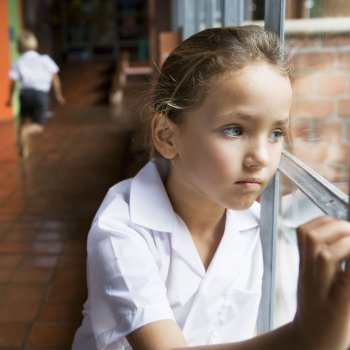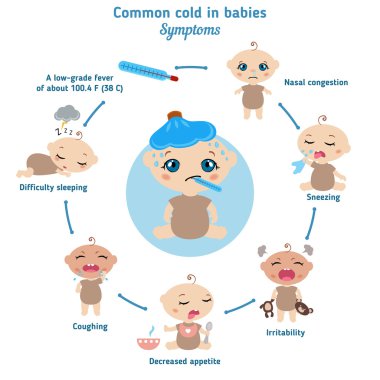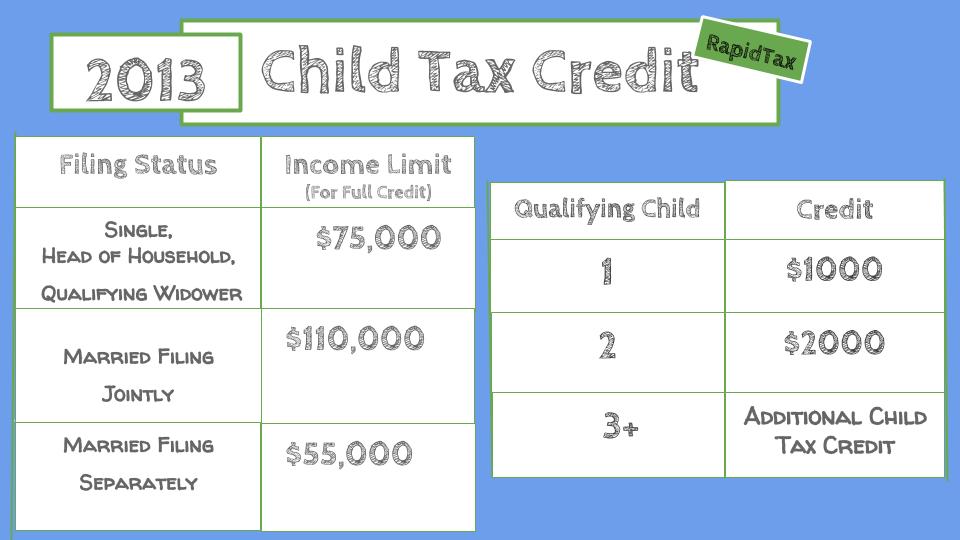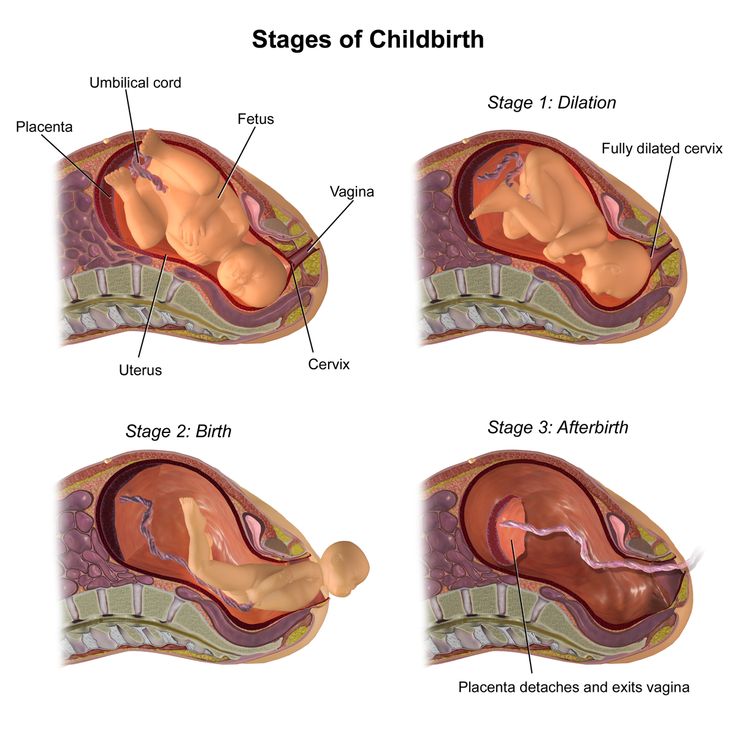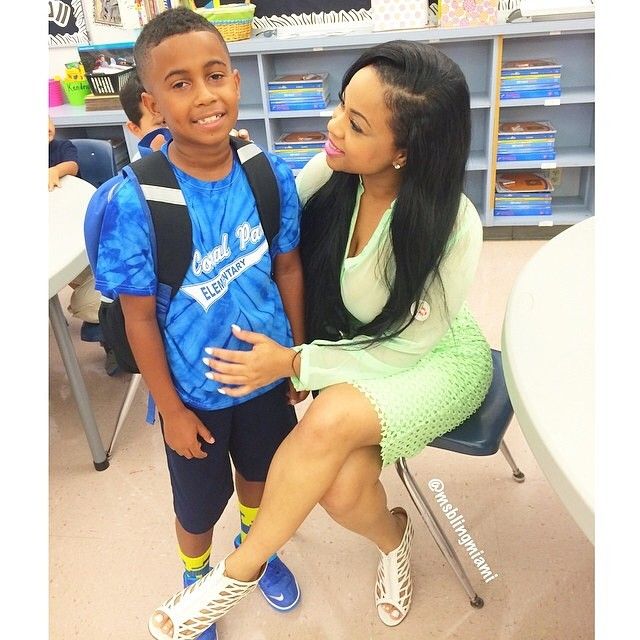How to help a highly sensitive child
Highly Sensitive Child Parenting Strategies
Written By Dr. Amy Nasamran
March 1, 2021 | Written by Dr. Amy Nasamran
Are you raising a child who seems different from other kids? Maybe you can’t quite put your finger on it. Your little one is bright, intuitive, and in many ways ahead of what you’d expect for their age. Yet they struggle with seemingly routine things or can sometimes become upset at what feels like a drop of a dime.
You might have a highly sensitive child.
As a child psychologist who’s heavily trained in diagnosing and treating childhood mental health issues, I admit this one’s new for me! We didn’t learn about high sensitivity in our doctoral program. I’m guessing this might be because being highly sensitive isn’t a diagnosis or a mental health disorder.
I learned about this term — highly sensitive person, or HSP for short — more recently. As I read, researched, and learned more and more about HSPs, I realized how much I identify as one. I was also likely a highly sensitive child, or HSC, but I didn’t know it back then.
Highly sensitive children have so many strengths, but they also have unique needs that easily get missed. Highly sensitive kids don’t always look like they need help. They’re bright, intuitive children who might put on a brave face like everything's okay when there are actually signs that they could use some extra support.
After months of research I’ve come to find that even the most reputable parenting books and resources out there don’t address how to help a sensitive child. So I wrote this guide to help you not only begin to understand your highly sensitive child, but also some highly sensitive child parenting strategies.
Highly Sensitive Child Traits
Before we jump into some highly sensitive child parenting strategies, it’s important to understand highly sensitive child traits.
In general, HSPs:
Notice more cues in their environment than others
Have stronger internal responses (physical reactions, mental processing, emotions)
In other words, HSPs and HSCs tend to notice more, think about it more, and feel more. But that’s grossly over-simplifying it, so let’s dig a little deeper into highly sensitive child traits.
It’s a Trait, Not a Disorder
Being highly sensitive is thought to be an innate, neurobiological trait that about 1 in 5 people have (about 20-30% of people). This means that HSPs have a nervous system (the brain) that notices and processes subtle information more deeply. Researchers have called being highly sensitive “environmental sensitivity” or “sensory processing sensitivity,” not to be confused with sensory processing disorder. In fact, being highly sensitive isn’t a mental health disorder or diagnosis at all. It’s an inborn trait that explains how a highly sensitive person processes information and behaves. It’s an innate part of their temperament and personality.
It’s an innate part of their temperament and personality.
According to Dr. Elaine Aron, clinical psychologist and one of the leading researchers of HSPs, being highly sensitive is a normal variation of human temperament and personality. All people vary in how they process information in their environment and how they respond. For example, sitting in a room full of people with the TV on and music playing, some people may not even notice or be able to easily tune out the TV and music. Others might notice the TV or music playing but can carry on a conversation, no problem. A few people may be distracted or even bothered by the background noises and become overwhelmed by all of the stimuli happening at once. HSPs are those few people. HSPs and highly sensitive kids perceive and process cues from their environment more strongly and thoroughly.
Characteristics of a Highly Sensitive Child
So you might be wondering, is my child highly sensitive? Highly sensitive children have some key characteristics:
Highly sensitive children notice more in their environment and take in more sensory information than other kids.
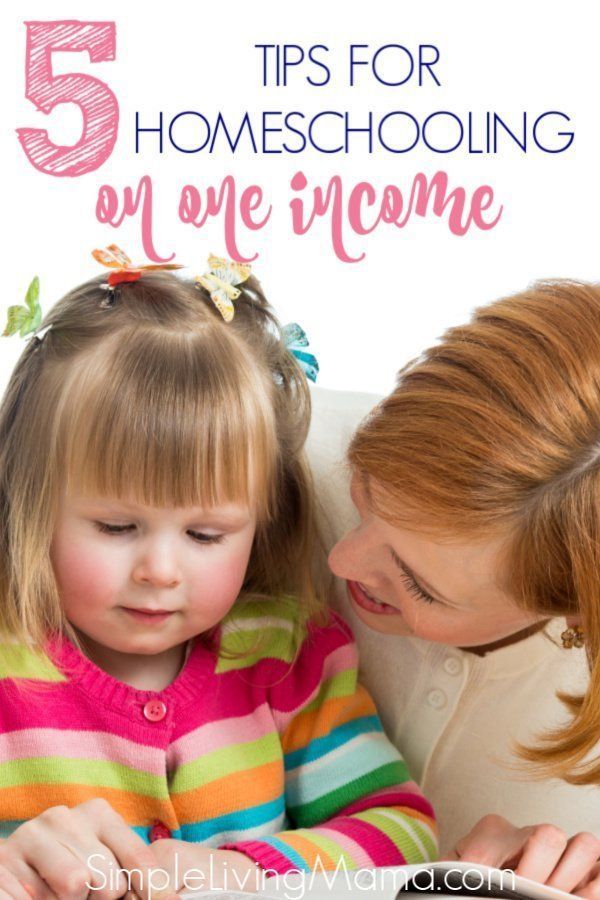 They may notice subtleties and changes that other kids don’t. For example, HSCs might be bothered by faint sounds or startled by loud ones, be bothered by wetness on their clothes, or detect subtle smells or flavors in food. They may also feel more sensitive or hurt by gentle teasing from loved ones or perceive typical kid play like the swings as too high or risky.
They may notice subtleties and changes that other kids don’t. For example, HSCs might be bothered by faint sounds or startled by loud ones, be bothered by wetness on their clothes, or detect subtle smells or flavors in food. They may also feel more sensitive or hurt by gentle teasing from loved ones or perceive typical kid play like the swings as too high or risky.Another highly sensitive child trait is processing information more thoroughly. HSCs prefer to observe and think before they act. They generally operate very conscientiously and carefully as a result and may appear quiet or shy. Some are also very creative as a result of their thoughtful and thorough thinking processes.
Highly sensitive kids have a strong sense of empathy for others. They take on the emotions of people and even animals around them. HSCs notice and spend more time thinking about social cues, like people’s facial expressions, tone of voice, and emotions.

Highly sensitive children are easily overwhelmed by the high levels of stimulation they experience. They’re more affected by unexpected or sudden changes in plans. HSCs are easily overstimulated and can become tired or overwhelmed more quickly.
Due to the high levels of noticing, thinking, and feeling, highly sensitive kids are susceptible to shutting down, tantrums, and meltdowns. This is usually the result of information or emotion overload from what is thought of typical kid activities, like a birthday party or the playing at the park, rather than defiance.
The Highly Sensitive Child in Everyday Life
Some ways that highly sensitive child traits might play out in everyday life include:
Using big words or asking lots of thought-provoking questions
Seeming mature for their age or ahead of their years
Preferring quiet play over rough and tumble or high-action play
Having difficulty going to bed especially after an exciting day
Being uncomfortable or having trouble adjusting to sudden or unexpected changes
Being easily bothered by scratchy clothing, loud noises, or smells of food
Showing deep care and nurture of their friends, animals, and living things and having strong feelings and empathy when people or animals are injured
Highly Sensitive Child Parenting Strategies
Given what we know about HSCs and their unique strengths and needs, supporting and disciplining a highly sensitive child comes with special considerations.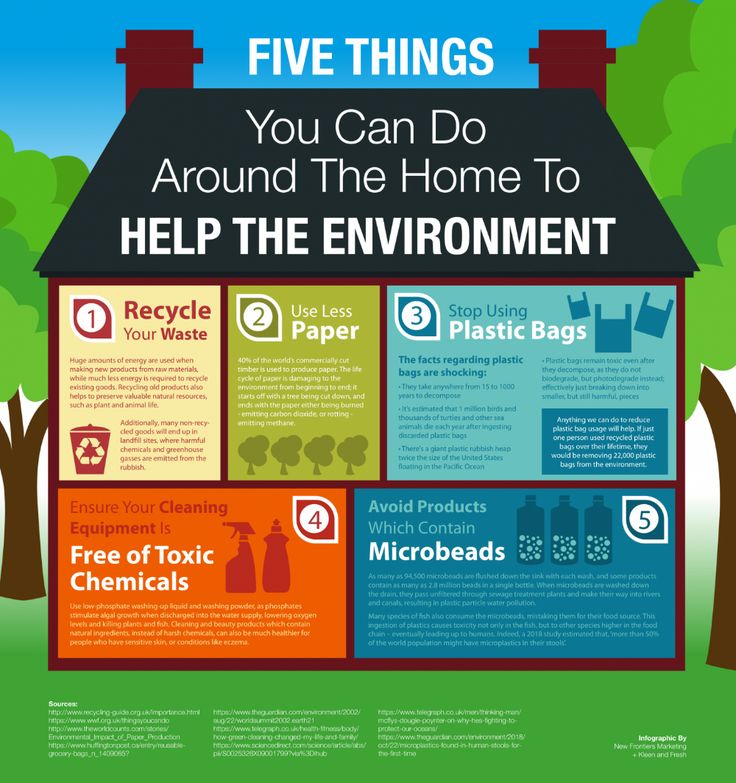 Disciplining a highly sensitive child by adjusting your discipline approach to match your child’s temperament will help them learn and succeed. Here are some highly sensitive child parenting strategies that address your child’s unique needs.
Disciplining a highly sensitive child by adjusting your discipline approach to match your child’s temperament will help them learn and succeed. Here are some highly sensitive child parenting strategies that address your child’s unique needs.
How to Help a Sensitive Child
Provide lots of downtime. A highly sensitive child can become easily overstimulated and overwhelmed by bigger groups (even a classroom of kids), sounds, and feelings. Providing plenty of downtime with quiet or relaxing activities can help your child decompress and recharge.
Provide structure and routine. Like most kids, highly sensitive kids thrive with structure and routine. Having a predictable and familiar routine helps kids feel safe and know what to expect. Avoid abrupt changes when possible. Of course, in life, things will come up. When plan changes are unavoidable, provide your highly sensitive child with as much notice as possible.
 This will give them time to adjust. Praise their cooperation even though it was hard for them to quickly shift gears.
This will give them time to adjust. Praise their cooperation even though it was hard for them to quickly shift gears.Encourage and praise their strengths. All kids thrive off of praise, and highly sensitive children need lots of encouragement and feedback too. When it comes to praising your highly sensitive child, reinforce their strengths, such as noticing their thoughtfulness or empathy for others. This will help normalize and humanize their feelings.
Teach feeling words. Highly sensitive kids feel many emotions, sometimes more strongly than others. Young children might show how they feel with their behaviors. Help your highly sensitive child learn feeling words to help them verbalize and better communicate how they feel with you.
Understand your own temperament as a parent. For example, are you someone who loves to talk and talks a lot? Do you thrive in groups or in high-energy environments? Or does your temperament match your highly sensitive child to some degree? Knowing your own temperament and personality can help you begin to understand how your needs may match or differ from those of your highly sensitive child.

Disciplining a Highly Sensitive Child
When it comes to disciplining a highly sensitive child, many parents express challenges with knowing what to say and do. HSCs are more sensitive to criticism and correction, and parents are understandably concerned about being too harsh or hurting their child’s feelings. Yet, all children, including highly sensitive kids, need a parent who can discipline in a way that helps them learn and grow.
Validate your child’s feelings. Start by acknowledging your child’s feelings. This will help them feel heard and understood. It will also help your highly sensitive child understand their own emotions. You could say, “I see that you’re frustrated,” or “I know that made you sad.” Showing empathy can also help your highly sensitive child become more receptive to your upcoming feedback.
Start with a positive. The phrase “connect before you correct” is key here.
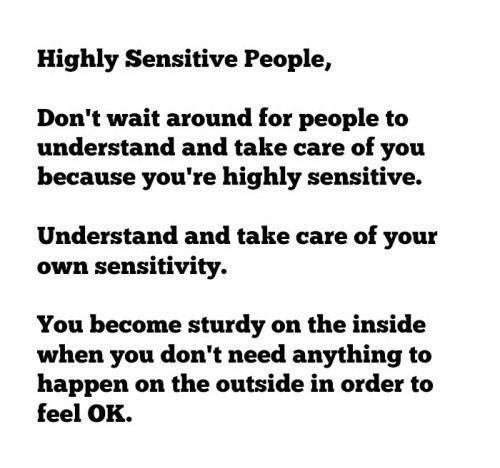 Notice a positive or bring up what they are doing well before you provide feedback and correction.
Notice a positive or bring up what they are doing well before you provide feedback and correction.Use a neutral tone of voice. Speaking in a neutral tone and volume will make it easier for your highly sensitive child to be receptive and understand your feedback. It can help them focus on the message instead of becoming overwhelmed.
Be direct and consistent. Tell your child exactly what your expectations are. Be clear and consistent with your rules. Even though it can be tempting to bend the rules to avoid upsetting a sensitive child, too many exceptions actually make it harder for them to learn in the long run. Sensitive children do best when things are predictable.
Having a highly sensitive child is a gift, and your child has many strengths like a strong intuition, empathy, and creativity. Highly sensitive children also have unique needs. If you feel like you’re struggling with raising your highly sensitive child, it may help to have an outside perspective.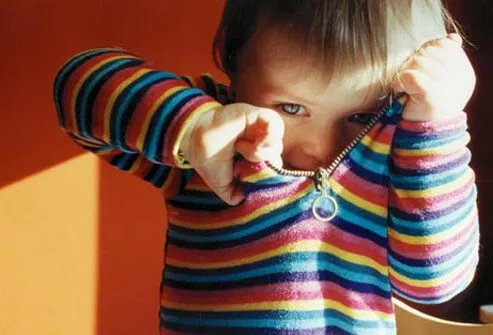 It’s important to consult with someone who specializes in the unique needs of how to help a sensitive child.
It’s important to consult with someone who specializes in the unique needs of how to help a sensitive child.
As a licensed psychologist, child behavior expert, and HSP myself, I have the unique ability to guide parents in using specialized skills to support their HSP child’s needs. I provide parent consultation and support at Atlas Psychology. Reach out to learn more!
MEET THE AUTHOR | AMY NASAMRAN, PH.D.
I’m Amy, a licensed psychologist, author, and child behavior expert. I specialize in working with people at two of my favorite stages in life: early childhood and early adulthood. Atlas Psychology was founded to provide community-driven, evidence-based education and mental health therapy for children, parents, and young adults.
INTERESTED IN WORKING TOGETHER?
Learn More
Dr. Amy Nasamran
How to Help Highly Sensitive Children Be More Adaptable and Flexible — Child Development and Parent Consultation
This article is part of a series on understanding and supporting highly sensitive children.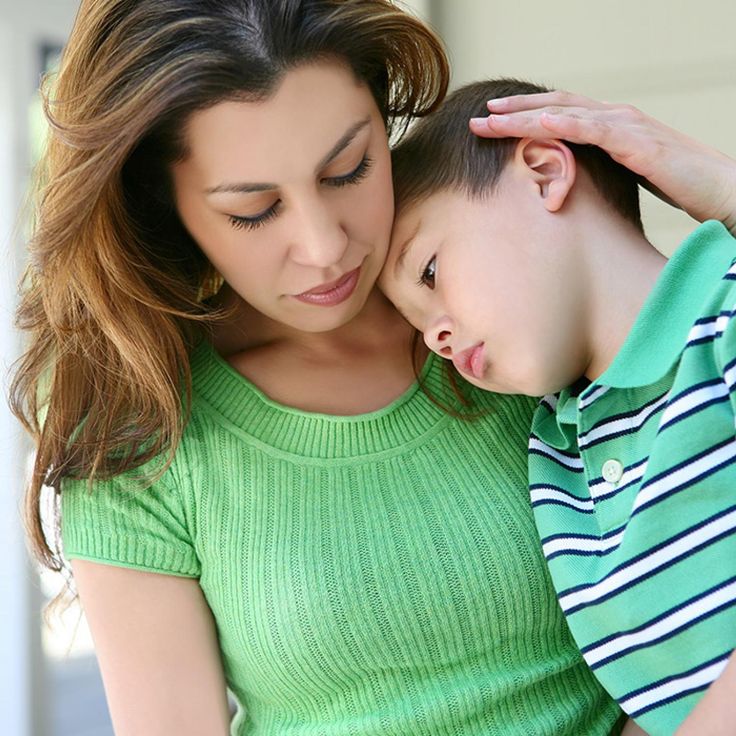 You can check out other installments in this series, here.
You can check out other installments in this series, here.
Flexibility is one of the most important assets for functioning well in this world. It is an essential ingredient for adapting to the countless events in life that we can’t predict or control. It also helps us work effectively in groups and develop healthy relationships because it enables us to take into consideration the perspectives and needs of others.
It’s important to keep in mind that learning to be flexible is harder for some children than others, largely due to their temperament. Go-with-the-flow kids, those "dandelions"* who are more adaptable by nature, are naturally more flexible. "Orchids"*--who are wired to be more sensitive—tend to be more inflexible. They often have intense responses to seemingly minor stressors, as illustrated by these typical examples:
Henry threw a huge fit because I picked him up from childcare instead of Grandma, who usually gets him at the end of the day. He kept shouting, “NO! Nana gets me!” He refused to get in the car and insisted I go home and get my mother to come instead
He kept shouting, “NO! Nana gets me!” He refused to get in the car and insisted I go home and get my mother to come instead
Chelsea refused to take a bath because I turned on the water when she wanted to do it herself.
Alexa hurled a cereal bowl across the room because I put the Cheerios in the blue bowl, not her favorite red bowl.
Luca refused to get dressed so I went downstairs with his baby sister. He started shouting that I had to come back up because he is the line leader and we are not allowed to go downstairs unless he is in front.
Flexibility can be even more challenging for children who have low sensory thresholds, meaning they are over-responsive to sensory input. Consider the child who feels very uncomfortable when other kids get too close to him and invade his space. For this child, the world can feel overwhelming as he is constantly bombarded by uncomfortable sensations. This naturally makes him feel more out of control than a child whose sensory system is better regulated and who is able to tolerate more input from the outside world. (I will address this phenomenon--that HS children often are over-responsive to sensory input--in a future installment in this series. You can also check out this blog to learn more about the impact of sensory processing on behavior.)
(I will address this phenomenon--that HS children often are over-responsive to sensory input--in a future installment in this series. You can also check out this blog to learn more about the impact of sensory processing on behavior.)
Because highly sensitive (HS) children register their feelings and experiences in the world so deeply, they live in a state of high-alert to prepare for and protect themselves from whatever big emotion or event they may be exposed to next that may feel overwhelming or uncomfortable. To cope, they come up with fixed ideas and expectations about how things should be to make daily life more manageable. This makes them inflexible—unable to accept an alternative way of doing things. Dictating where people will sit, how loud the music can be, what color bowl their cereal should come in, what clothes they will and will not wear, or how close the chicken can be to the carrots on their dinner plate—seemingly irrational demands—are all coping mechanisms HS children use to control an environment that otherwise feels out of control. The more out of control these kids feel on the inside, the more controlling they become on the outside.
The more out of control these kids feel on the inside, the more controlling they become on the outside.
How to help your child become more flexible:
Validate your child's emotions and experiences. Remember, feelings are never the problem—it's what kids do with their feelings that can become problematic.The more you acknowledge the emotions that are driving your child's behavior, the better equipped she is to manage them in more effective ways: "You are upset because you thought Grandma was going to pick you up. I totally get that—you don't like it when something different happens from what you expected."
Set the limit calmly and lovingly. "But Grandma went to the doctor and the appointment took longer than expected. So, I am here to get you." Then, as calmly as you can, move along to show your child that you are not going to engage in a long back-and-forth about this or react to her protestations, as that only fans the flames and reinforces the inflexibility.
 Ignore her attempts to draw you into a struggle but don't ignore her. Even as she is kicking and screaming while you buckle her into the car seat, you might start telling a funny story, put on music she likes, or talk about what you might play together when you get home, to show that you are available to engage in positive ways but will not keep a negative dynamic going.
Ignore her attempts to draw you into a struggle but don't ignore her. Even as she is kicking and screaming while you buckle her into the car seat, you might start telling a funny story, put on music she likes, or talk about what you might play together when you get home, to show that you are available to engage in positive ways but will not keep a negative dynamic going. Teach perspective-taking. When you set limits appropriately, and don't give in to your child's unreasonable demands, you are helping your child see the world from other people's point of view and take into account their needs and feelings. For example: “Teddy, I know you want me to read this book right now, but Joey is uncomfortable and needs a diaper change. I’ll read to you when he’s all set.” Then ignore his antics, change the baby's diaper and re-engage Teddy when you're done. Let him know he did a great job waiting (even if he screamed the whole time) and that now you can read the book.
 The idea is to focus on the fact that he survived the waiting—the outcome you want to reinforce—and not to pay attention to the behaviors designed to derail you and get you to adapt to his demands. Another example: "I know you want to wear the Batman cape. It's your favorite. But Sumi also wants a turn. We can use a timer to help you share.You can either choose another cape to wear when it's Sumi's turn, or you can wait until it's your turn. That's your choice. But we are going to give her a turn because that's fair."
The idea is to focus on the fact that he survived the waiting—the outcome you want to reinforce—and not to pay attention to the behaviors designed to derail you and get you to adapt to his demands. Another example: "I know you want to wear the Batman cape. It's your favorite. But Sumi also wants a turn. We can use a timer to help you share.You can either choose another cape to wear when it's Sumi's turn, or you can wait until it's your turn. That's your choice. But we are going to give her a turn because that's fair." Model flexibility. Highlight ways you are being flexible in your everyday experiences. “I can’t find my favorite hat. I guess I’ll have to be flexible and wear this one instead.” “This restaurant isn’t open. We’ll have to be flexible and choose a different place to eat.” “We were going to go to the park this afternoon, but I see you have some energy to burn so I am going to be flexible and take you this morning.
 ”
”Acknowledge and give a lot of positive feedback when your child is being flexible. "You gave Henry the tunnel he wanted for his train and took the bridge instead. You did a great job being flexible!” “You really wanted to go on the swing, but they were all taken, so you played in the sandbox instead. Great job being flexible!” "You wanted to turn on the water for the bath but mommy had already done it. You were disappointed but you were able to calm yourself and have a fun tub-time. And then you got to be the one who turned the water off. Being flexible is awesome!"
Point out the benefits to your child of being flexible. Here are some recent examples from families I work with:
Paloma loves active play, so her parents signed her up for a soccer program. But when they arrived for the first session, she refused to participate because she wanted to have control of the ball the entire time instead of taking turns.
 She insisted on quitting the program. But her dad, Richard, told her that they had committed to the class and so they would keep going. He acknowledged that he would not and could not force her to participate. It is her body and only she can decide what to do with it. So, her choices would be to sit on the sidelines and watch, or to join the group. By the second class, Paloma started to inch her way toward the group and by the third class, she was starting to participate. By the fifth class she was all-in and loving it. Richard gave her lots of kudos for taking a risk and pointed out to her how if she hadn’t been flexible, she never would have known how much she loved soccer and playing it with her friends. Now, when Paloma is digging in her heels, Richard helps her recall the soccer experience to remind her of her ability to be flexible and the benefits of accepting alternative options.
She insisted on quitting the program. But her dad, Richard, told her that they had committed to the class and so they would keep going. He acknowledged that he would not and could not force her to participate. It is her body and only she can decide what to do with it. So, her choices would be to sit on the sidelines and watch, or to join the group. By the second class, Paloma started to inch her way toward the group and by the third class, she was starting to participate. By the fifth class she was all-in and loving it. Richard gave her lots of kudos for taking a risk and pointed out to her how if she hadn’t been flexible, she never would have known how much she loved soccer and playing it with her friends. Now, when Paloma is digging in her heels, Richard helps her recall the soccer experience to remind her of her ability to be flexible and the benefits of accepting alternative options.Matteo insists his parents place his five blankets on him in exactly the order and way he prescribes every night.
 Shockingly, he gets up minutes after they say “goodnight” to tell them he needs water, or another kiss, or any host of obfuscations to avoid going to bed. The blankets naturally get all messed up and the ritual starts all over again, with Matteo’s parents having to arrange them according to his specifications. After I thought this scenario through with mom and dad, we agreed that this process was reinforcing Matteo’s rigidity which was not good for him. So, his parents made a rule that they would put the blankets on one time. If he chose to get up after lights-out, he would need to get the blankets back on by himself. They had him practice how to do this—to empower him. The first few nights were difficult. But once Matteo saw the plan was firm, he often chose to stay in bed. If he did get up, he got comfortable arranging the blankets himself. This helped him see that he could survive having the blankets positioned on his body in ways that were not exactly as he was used to. This increased his ability to be flexible and nurtured his resilience.
Shockingly, he gets up minutes after they say “goodnight” to tell them he needs water, or another kiss, or any host of obfuscations to avoid going to bed. The blankets naturally get all messed up and the ritual starts all over again, with Matteo’s parents having to arrange them according to his specifications. After I thought this scenario through with mom and dad, we agreed that this process was reinforcing Matteo’s rigidity which was not good for him. So, his parents made a rule that they would put the blankets on one time. If he chose to get up after lights-out, he would need to get the blankets back on by himself. They had him practice how to do this—to empower him. The first few nights were difficult. But once Matteo saw the plan was firm, he often chose to stay in bed. If he did get up, he got comfortable arranging the blankets himself. This helped him see that he could survive having the blankets positioned on his body in ways that were not exactly as he was used to. This increased his ability to be flexible and nurtured his resilience.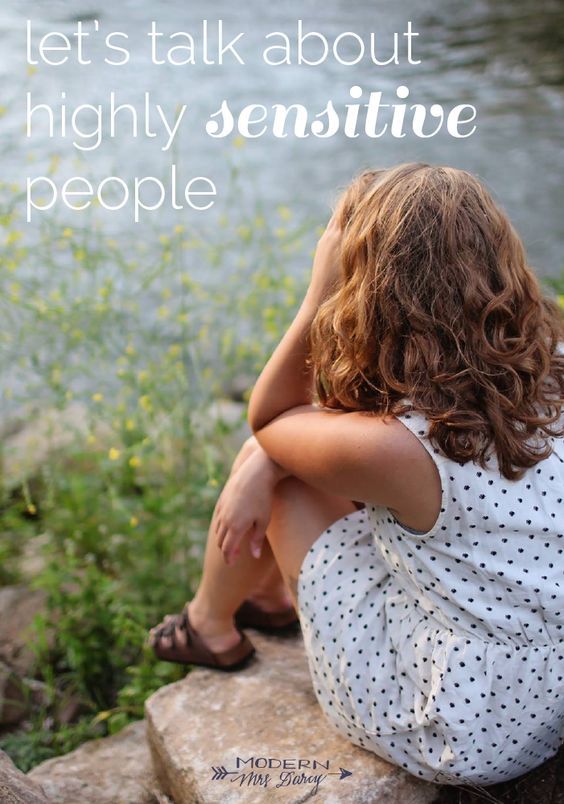
CHECK OUT ALL THE BLOGS IN THIS SERIES ON UNDERSTANDING AND SUPPORTING HIGHLY SENSITIVE CHILDREN.
follow me on instagram
Subscribe to the lerner child development newsletter
Claire Lerner
0 LikesA very sensitive child: the secrets of communication
Sometimes children give out an over-emotional reaction to seemingly completely prosaic things. Dad joked unsuccessfully, mom didn’t allow me to eat ice cream before going to bed - a tantrum begins. How to help a hypersensitive child navigate the world?
Actually, there are many advantages to being a very sensitive person. Here's how to help your child manage his deep feelings so that he learns to deal with them.
According to Jadzia Jagiellowicz, Ph.D., founder of the High Sensitivity Society, up to 33% of the population is considered "sensitive": they feel all stimuli more intensely, they can be overwhelmed by emotional and physical stimuli. Dr. Jagiellowicz says their brains are more receptive to incoming stimuli and more responsive to physiological cues — such as upset stomach or rapid breathing — than the brains of their less sensitive peers.
Dr. Jagiellowicz says their brains are more receptive to incoming stimuli and more responsive to physiological cues — such as upset stomach or rapid breathing — than the brains of their less sensitive peers.
“There are many benefits to being a sensitive person. Sensitivity leads to empathy, self-awareness, and creativity,” says Laura Greenberg, a Canadian psychotherapist.
How to help sensitive children?
Check and connect
Sensitive children often feel that their emotional responses are misunderstood or rejected by parents and peers. “The most valuable thing you can do for children,” Greenberg says, “is just acknowledge their feelings.” Instead of trying to solve the problem (“Why do you suddenly think that no one likes you?”), be with them (“It looks like you had a hard time today when your friend refused to play with you”). By talking about what's going on, you're helping the children start the process of regulation.
As children get older, emotional connection with them continues to be critical.
Unless there are tools to manage strong feelings, there is a risk that the child will turn to negative behaviors and less healthy coping strategies. By staying attuned to the feelings of children, you will know if they need extra support as their world grows larger and more complex.
Identify and name feelings
Identifying and labeling feelings can help children regulate their emotional ups and downs. Teach your child to match feelings and words, and then discuss in what situations and how it can be used. If the child is closing in, having difficulty speaking, help him make a clearer connection between what happened and what he is experiencing. For example, he refuses to eat his sandwich - because you cut it into triangular pieces, and he would like rectangular ones. You can say: “I noticed that after I cut the sandwich, you got very upset and stopped talking. Is it because you wanted differently and are now disappointed?"
For preschoolers, non-verbal ways of communicating may be appropriate: for example, draw together faces representing different emotions (happy, sad, scared) on cards, and have the child simply point to the card that best matches their feelings.
Or use a paper "traffic light" with "yes" and "no" signs so that you can quickly get an answer to a question. These little communication tricks can help bridge the gap between frustration and communication.
Take the time to prepare
Sensitive children are comforted by predictability and routine and prefer to know exactly what to expect. Before the first day of school, for example, try to introduce the child to the teacher and look around the class so that the environment at the right moment is already more familiar. Let the changes in life, regime, everyday moments also be gradual. Children who are more sensitive than their peers sometimes worry about what other people think of them - and worry even more. To combat this, Harris suggests that parents rehearse with their child in advance phrases that can be used to respond to various situations and act out these scenarios. For example, how to ask another child for a toy, or how to contact a teacher if you are thirsty.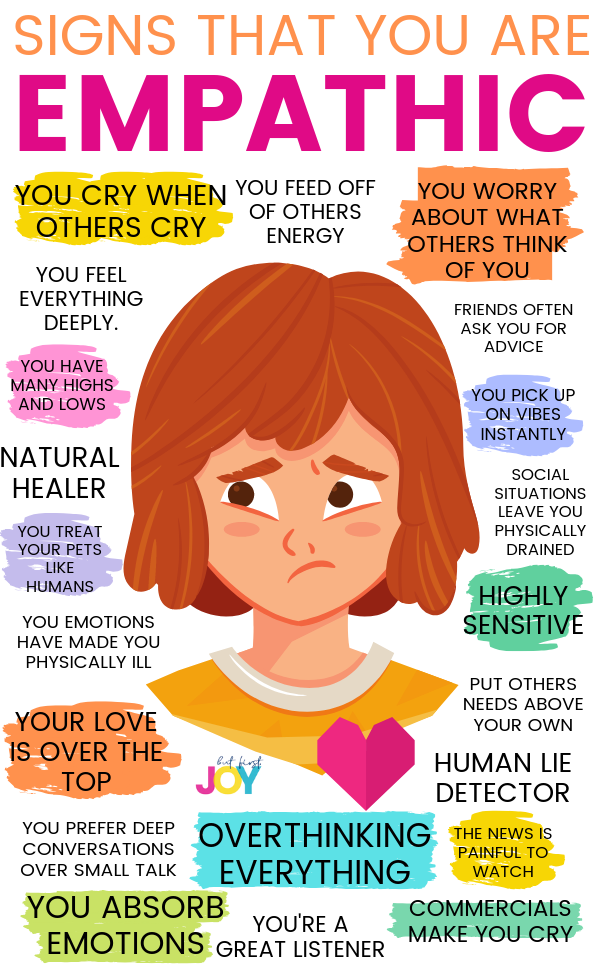
Creating boundaries and safe spaces
Since sensitive children take in more information from the environment and react more strongly to it, it is worth doing the prevention of overload. These can be quiet places to relax in an apartment (plaids, pillows, "houses"), specially created opportunities for relaxation after intense and stimulating activities. Help kids set boundaries that allow them to safely process strong emotions: “It might not be worth going to a birthday party after a hard hockey practice session,” Greenberg says, because both require a lot of emotional energy investment.
Among the characteristics of highly sensitive children is a strong awareness of the ethical nature of the moments ("Is this situation fair?" or "Why doesn't Katya keep her promises?"). “Therefore, they will be inclined to criticize themselves if they have done something wrong,” says Dr. Jagiellowicz. Discuss prohibitions clearly and without judgment; and make sure the consequences of violations are fair and consistent with family rules and regulations.
It's better to say "You can't play on your tablet right now because you haven't finished your homework" than "You're lazy and optional, so don't touch your tablet."
See also:
Books that will teach preschoolers to better understand emotions
How to criticize children correctly?
"Yes, I'm angry!" Exercises that will help to cope with anger children and parents
Based on materials from Parents.com
Photo: Shutterstock
Development
“I have a very sensitive child”
25 530 9000
Parents
Such children of the Russian , touchy, upset for a long time. They react emotionally to attitudes and even intonations of other people's voices. According to the observation of the American clinical psychologist Elaine Eyron, who has been studying the phenomenon of high sensitivity for a quarter of a century, these children are able to notice the slightest novelty of taste and any change in temperature. They startle at loud noises and cry if bright light hits their eyes.
They startle at loud noises and cry if bright light hits their eyes.
And as they get older, they become more and more emotionally sensitive: they start crying quickly when their feelings are hurt, they become more anxious and may be so happy that they simply "can't bear it."
Think about the reasons
Many of these manifestations cause anxiety or despair in their parents, they would like to see their children more resilient, balanced and adapted to the blows that life can inflict on them. “It is pointless and harmful to fight and re-educate a vulnerable child,” explains developmental psychologist Galina Burmenskaya*. - After all, high sensitivity is an innate property of temperament, a quality that is transmitted genetically and, as a rule, accompanies a person all his life.
But if an adult with hypersensitivity is already able to assess the depth of the wound inflicted on him, he knows that the pain will eventually stop, then the child does not have the necessary experience, and therefore he feels panic because of any disorder.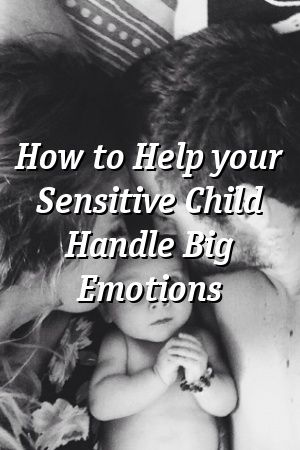 Instead of giving adult arguments (“Yes, there are a lot of these bugs in the forest, people can’t fly through the air to make way for them ...”), show sympathy, help him express his feelings with words or tears (“Cry, I understand you, sometimes it hurts a lot when you cannot save the life of even such a small creature”).
Instead of giving adult arguments (“Yes, there are a lot of these bugs in the forest, people can’t fly through the air to make way for them ...”), show sympathy, help him express his feelings with words or tears (“Cry, I understand you, sometimes it hurts a lot when you cannot save the life of even such a small creature”).
A violent reaction to an insignificant cause (like a lost button or a sharp voice from the father) may indicate the existence in the child's soul of a completely different, deeper suffering associated with problems at school or at home... Maybe this event reminded of a long-standing experience, which the child experienced at one time and was unable to express (for example, being a witness to a quarrel between parents).
Express your feelings
In any case, it is important to try to determine the root cause of his reactions and gradually strengthen him from within. What does "strengthen" mean? First of all, pay more attention to his emotions and encourage open expression of feelings through words or tears that help ease the pain. We often forget that tears give us emotional release, liberation.
We often forget that tears give us emotional release, liberation.
“A child will endure the rudeness of a peer, a tactless remark of a teacher, the cooling of a friend more steadfastly if he has developed close, trusting relationships with his parents, if he is sure that at home he will be listened to without criticism and ridicule,” explains Galina Burmenskaya. - If someone offended, ridiculed, humiliated your child, explain that if not he, but he was treated badly, then moral superiority is on his side and he should not be upset. Of course, this will not completely rid the child of bitter feelings, but will allow them to survive without dangerous accumulation and the formation of the position of the victim.
Empathize with others
And besides, it is important to remember that such children are sensitive not only to themselves, but also to other people, to their emotional state; they are capable of deep empathy, sympathy, they sincerely respond to the joy and pain of their neighbor.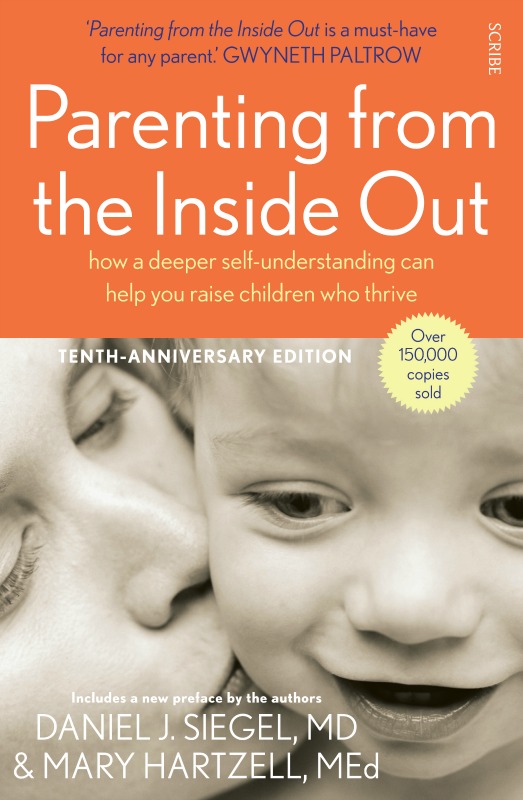 These qualities should be valued and strongly supported in your child. If you notice that he is too painful, overreacts to the suffering of others, try to direct his experiences into the mainstream of practical, effective help. Invite him to collect together with you a parcel of books for the orphanage or write a New Year's card to an elderly lonely neighbor on the porch.
These qualities should be valued and strongly supported in your child. If you notice that he is too painful, overreacts to the suffering of others, try to direct his experiences into the mainstream of practical, effective help. Invite him to collect together with you a parcel of books for the orphanage or write a New Year's card to an elderly lonely neighbor on the porch.
Galina Burmenskaya reminds parents who are too worried that their mentally fragile child will not be able to achieve significant success in a career that requires pressure, toughness of character: “Success cannot be achieved at the cost of breaking the individual personality. And without spiritual sensitivity there can be neither love, nor friendship, nor sympathy, so valued by each of us.
"Their body as a whole is better equipped to notice and carefully analyze everything that concerns it."
Elaine Eyron is a clinical psychologist, author, and author of The Highly Sensitive Child. How to help our children thrive in this difficult world.
 ”
” Highly sensitive people are people who are born with the ability to notice more in their environment and think deeply about everything before acting than those who notice less and act quickly and impulsively. As a result, sensitive people - both children and adults - tend to be empathic, intelligent, intuitive and creative, caring and conscientious (they calculate the consequences of violations and therefore are not inclined to commit them). They are easily disabled by too much information arriving at the same time. They try to avoid it and therefore often come off as shy, shy, or nerdy. When they fail to avoid excessive stimuli, they give the impression of being "too sensitive" or "easily upset."
Even though HSPs notice more, it doesn't mean they have better eyes, ears, smell, or taste buds, although some do report at least one sense that is particularly acute for them. It's just that their brain processes information more thoroughly. However, this is not exclusively a brain process, as highly sensitive people, children or adults, have a higher rate of reflex reaction (the reaction that comes from the spinal cord), are more sensitive to pain, drugs or stimulants, they have a very reactive immune system, more often allergic reactions occur.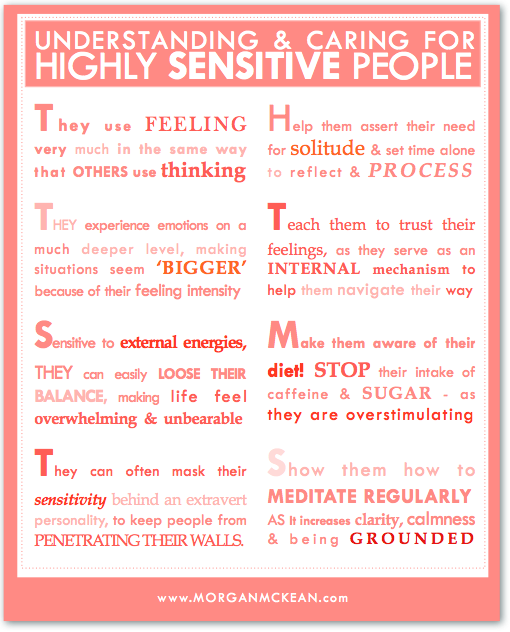 In a sense, their body as a whole is better equipped to notice and carefully analyze everything that touches it.
In a sense, their body as a whole is better equipped to notice and carefully analyze everything that touches it.
Do you have a highly sensitive child?
Parent Questionnaire
Please answer each question as accurately as possible. Answer “true” (B) if it is true or applies to your child in one way or another, or applied to a certain period in the past. Answer “false” (N) if it is not about your child at all or is not entirely accurate.
- Easily frightened. B H
- Complains of scratchy clothing, sock seams, or tags that come into contact with his skin. H H
- Usually not happy with big surprises. B H
- Better remembers discreet remarks than severe punishment. B N
- Seems to be reading my mind. B N
- Uses difficult words for his age. B H
- Notices the slightest unfamiliar smell. B H
- Has a good sense of humor. B H
- Good intuition. C H
- Difficulty falling asleep after a stormy day.
 H H
H H - Does not handle big changes very well. H H
- Wants to change clothes if they are wet or covered in sand. B H
- Asks a lot of questions. B N
- Perfectionist. C N
- Notices other people's troubles. H H
- Prefers quiet play. H H
- Asks deep, thought-provoking questions. B H
- Very sensitive to pain. H H
- Worried in noisy places. B N
- Notices nuances (something has been moved, something has changed in the appearance of a person, etc.). B H
- Considers if it is safe before climbing high. H H
- Performs better when there are no strangers around. B N
- Feels deeply. B F
If you answered 13 or more questions “true”, your child is probably highly sensitive. However, no psychological test can be so accurate that you can determine how you should behave with your child based on its results. If just one or two of the signs are true for your child, but appear in an extremely high degree, you can also confidently call your child highly sensitive.